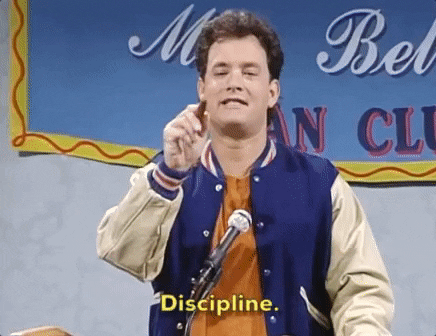Advertisement
OPINIONS
Intermittent Fasting Changed the Way I Spend My Money
The Financial Perks that Come from an Intermittent Fasting Habit
I have been intermittent fasting for 8 years now.
I started in 2012, before it got picked up as the ‘new diet trend in 2018/2019’.
For me, my eating schedule varies between 16:8 and 18:6. This essentially means that I have 2 meals a day, where my first meal is around 12 noon (or later) and I aim to have my dinner before 8pm.
You may ask (like my mum often asks me), aren’t you hungry in the mornings?
Not at all. In fact, I am not hungry until 1pm or 2pm. On top of that, I tend to do most of my workouts fasted, and I do not feel hungry at all. In fact, I experience more clarity of mind and more physical explosiveness when I do my workouts.
Surprisingly, since I’ve started intermittent fasting I’ve increased muscle mass, reduced body fat and more importantly (and unsurprisingly), reduced my spending on food.
It’s 2020. We Are All Well Aware of Intermittent Fasting
Fast forward 8 years – and Intermittent Fasting (IF) has become a trend. While I was aware of the myriad of health benefits, I did not start intermittent fasting because of the health benefits.
Instead, I started intermittent fasting because it saves time, AND money. This meant that I didn’t need to think about breakfast the first thing in the morning, and saved an average of $3-10 a day. My favourite Fried Economical Bee Hoon from the now-defunct Golden Shoe Hawker Centre was S$3 at least. My once-favourite Greek Yogurt topped with crushed pistachios and honey was, S$9.90. Looking back, I cannot believe I spent that amount of money on breakfast. The way I justified it was that my job then paid for lunch.
In addition, I realized that having the breakfasts I had in the past would make me more likely to eat more throughout the day. Once I was done eating breakfast, I would be thinking about lunch in two hours. As someone who worked in the Central Business District area in Singapore, this meant piling food expenses.
Financial Perk #1: You Save by Not Spending on One Extra Meal (for Obvious Reasons)
 Image credit: https://LilDicky.lnk.to/Earth
Image credit: https://LilDicky.lnk.to/Earth
By consuming my day’s required calories in nutrients over two meals (and sometimes a snack in between – I will get to that later) per day means that I effectively spend less on food. Whether it’s cooking two meals at home or going out for the occasional meal, I just end up spending less money on food. Saving $3 – $10 a day effectively meant saving $90 – $300 a month.
Before IF: Breakfast would usually involve a hot drink and some carbs. This would range anywhere from $3 to $10 – depending on how decadent I am feeling that day. Having breakfast does not change my lunch and dinner preferences. For example, when I was eating breakfast and working in the CBD, I would often crave for a breakfast set from Doutor, which would set me back by S$6-S$8 for a pastry and a hot matcha latte. It was something that I craved every morning, and I conditioned myself to think that if I don’t have it, I cannot function properly.
After IF: I would have greater clarity of mind in the morning, and still go for the same lunch choices as I would have even if I ate breakfast. I would also have cut down on 20% to 30% on my daily food expenses.
Financial Perk #2: Honing Mental Discipline
 Image credit: https://www.nbc.com/saturday-night-live/video/mr-belvedere-fan-club/n10256
Image credit: https://www.nbc.com/saturday-night-live/video/mr-belvedere-fan-club/n10256
IF helped to hone my mental discipline. This meant that I was not a slave to food cravings, and would not mindlessly spend on snacks or a sweet drink.
Before IF: I was more prone to spend money to buy sugary snacks to quell my cravings. Eating more meant that my mind was more tuned to seeking out food and snacks.
After IF: I became more sensitive and conscious of the food I eat. As such, I was not likely to head to the convenience store or cafe to buy a snack to eat. I became more conscious of ‘Having more bang for my buck’ in terms of what I ingested, but in this case, its more of ‘Having more nutrients per calorie’ ie. eating Nutrient Dense foods. I used to love eating pastries, but I have since moved towards eating almonds and blueberries when i feel the need to snack.
Financial Perk #3: Recognizing and Being Able to Differentiate Wants vs Needs in Your Spending
Image credit: http://pandawhale.com/post/35969/aladdin-genie-jaw-drop-gif
IF taught me the value of ‘WANT’ vs ‘NEED’.
Before IF: I was less conscious of what I ate. I felt like I NEEDED that delicious Greek Yogurt with Honey and Crushed Pistachios, when on hindsight, I never really needed it. I bought it so often that I could see the exact brand of yogurt used, and knew that I would spend less than S$2 if I assembled the same thing myself.
After IF: I made more conscious decisions about what I ate, and this consciousness moved to how I spent my money, as I was focused on always spending on ‘needs’, but not necessarily ‘wants’.
I do recognize that people could say that they ‘NEED’ certain things, just like how i NEEDED that overpriced yogurt in the morning. Intermittent fasting helped me better discern what I truly needed, and not what I needed due to cravings.
How it influences my spending: Likewise, when I look at purchasing decisions when it comes to apparel, I will consider if I truly need it, or if I am buying it because of other reasons. Similarly, when I am at the supermarket buying groceries for the family, I will keep to essential items (read: I do not buy things like gummy bears, or the latest truffle chips).
What I have learnt from 8 years of intermittent fasting to make it easy:
Water is your best friend – when you feel you are hungry, you might just really be thirsty. Take that sip of water, and see if the hunger pangs go away.
Don’t look at the clock to determine when you ‘SHOULD’ eat, instead, listen to your body and its hunger signals.
When you do eat, make sure to focus more on nutrition so that you make every calorie count. Personally, my taste buds changed post fasting – I do not crave sugar treats as much as in the past.
Do note that if you have not fasted before, do make sure that certain groups of people should not be fasting: this includes pregnant women who need all the nutrients as they are eating for two, anyone who has medical conditions, or people who already have a very low BMI. Fasting is not a starvation diet, but narrowing the window in which you are injesting your food. Just make sure you’re not denying your body the calories and nutrients it needs to function optimally.
Comments
2061
0
ABOUT ME
10 years into my personal finance journey. I mainly write on www.missfitfi.com Also, don't want to be a unicorn ;)
2061
0
Advertisement
No comments yet.
Be the first to share your thoughts!